I read very little this year. I was living by myself for the first time and learning that the longer you’re alone the harder it is to not be alone. When I wasn’t on my phone for six hours a day, I was stoned out of my mind and streaming every single episode of Survivor I could find online. For much of the summer and early fall, as I finished my first novel, I avoided reading altogether to protect this book from my bottomless need for comparison; it’s impossible, when you’re an immigrant, to not notice everything you’re not. But now that my novel has sold, I feel ready to take risks as I haven’t since my early 20s. I want more books, more sex, more writing, more love. There is so much more to life than protecting myself from—and I hate to say this—myself. The following are the few books that managed to draw me into the world, when all I wanted was to curl into a ball and forget I was human.
Akhil Sharma’s Family Life—January, my first book of the year. Sharma’s deceptively simple sentences and bewildering transitions were a map for huge grief at a time when my mind was with my grandmother in Colombia—bedridden for years, mostly mute—and all the stories of love and hate my mother had shared with me over the holidays.
Larry Kramer’s Faggots, which I read with my friends, Carl and Ryan, as part of our short-lived gay book club. We were trying our best to stay in touch; Carl was back in Little Rock, and Ryan in Philadelphia. I forget who picked this one, but it was so fun, so sloppy, so full of poppers and dildos and beach orgies that it was a joy to read, especially as February in Iowa City made the world white, then whiter.
My pick was Brontez Purnell’s 100 Boyfriends. The three of us followed Brontez online, and we often shared his posts in our group chat. Ping-ponging between lovers and memories of lovers, this book was a celebration of how faggots make lives out of who and what we can get our hands on. I took a selfie with the book covering my bare ass for Brontez, starting a new friendship.
 Next was Peter Kispert’s debut collection, I Know You Know Who I Am. I saw so much of myself in these characters, and the calculated, often misguided, risks they took for connection.
Next was Peter Kispert’s debut collection, I Know You Know Who I Am. I saw so much of myself in these characters, and the calculated, often misguided, risks they took for connection.
Our fourth book and final pick was Nicole Dennis-Benn’s Here Comes the Sun, a devastating story of queer womanhood in Jamaica. For several weeks, I treaded slowly through the pain these women were forced to withstand. As for Carl and Ryan, they took months to finish it, and when they finally did it was November, and I had forgotten everything but the painful image of Thandi—a teenager and artist—rubbing bleaching creams onto her skin, wrapping herself in saran wrap, and throwing a sweater on to keep her secret safe.
T. Fleischmann’s Time Is the Thing a Body Moves Through was the most genius thing I ever read about art, sex, and queer community. Posting picture after picture from its passages to my social media, like they were lyrics or poems, I felt 15 again.


 Then, for several months, and for no apparent reason—or for every imaginable reason—I struggled to read a complete book. Several people I knew were reading Shirly Hazzard’s The Transit of Venus and so I checked a copy out from the library, adored its first 50 pages and never picked it up again, realizing that even if I was reading the same book as some acquaintances, I was still alone. I turned to Kristen Arnett’s With Teeth, which was as funny and unsettling as her debut novel, Mostly Dead Things, and though I still think of this unhinged mother and her chaotic little lovely son, I only got halfway through this book. I read a few essays from Larissa Pham’s Pop Song, about running, photography, and the color blue, which I’d seen Larissa write over the years and though I really shouldn’t be surprised by her genius—since we’ve been best friends since college—I was.
Then, for several months, and for no apparent reason—or for every imaginable reason—I struggled to read a complete book. Several people I knew were reading Shirly Hazzard’s The Transit of Venus and so I checked a copy out from the library, adored its first 50 pages and never picked it up again, realizing that even if I was reading the same book as some acquaintances, I was still alone. I turned to Kristen Arnett’s With Teeth, which was as funny and unsettling as her debut novel, Mostly Dead Things, and though I still think of this unhinged mother and her chaotic little lovely son, I only got halfway through this book. I read a few essays from Larissa Pham’s Pop Song, about running, photography, and the color blue, which I’d seen Larissa write over the years and though I really shouldn’t be surprised by her genius—since we’ve been best friends since college—I was.


 In May, I was so manic and restless that I ordered every single book by Carl Phillips through my university’s interlibrary loans. Everyone I’d known in Iowa City for the last three years was moving away, and it felt like my life was vanishing before my eyes. I would have to start again somewhere else, and after so many of these dislocations, I wasn’t afraid, exactly, as much as I was tired, and though I didn’t get through all of them, Pale Colors in a Tall Field, Silverchest, and Double Shadow, in particular, beamed a light into my life when I needed it most.
In May, I was so manic and restless that I ordered every single book by Carl Phillips through my university’s interlibrary loans. Everyone I’d known in Iowa City for the last three years was moving away, and it felt like my life was vanishing before my eyes. I would have to start again somewhere else, and after so many of these dislocations, I wasn’t afraid, exactly, as much as I was tired, and though I didn’t get through all of them, Pale Colors in a Tall Field, Silverchest, and Double Shadow, in particular, beamed a light into my life when I needed it most.
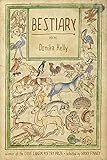
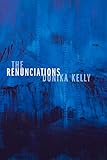 In June, as I packed my apartment into boxes and left everything ready for a swift move when I returned at the end of the summer, I read Donika Kelly’s Bestiary and The Renunciations, back to back, and sometimes aloud. They were like hot rocks, I couldn’t put them down even if they were searing my hands; I wanted more, the way some pains make us insatiable.
In June, as I packed my apartment into boxes and left everything ready for a swift move when I returned at the end of the summer, I read Donika Kelly’s Bestiary and The Renunciations, back to back, and sometimes aloud. They were like hot rocks, I couldn’t put them down even if they were searing my hands; I wanted more, the way some pains make us insatiable.
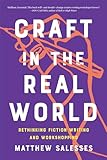 A sweaty room with no A/C in New York City was my home for July. I was teaching an online workshop for queer high schoolers, and I prepared for class everyday by rereading sections of Matthew Salesses’s Craft in the Real World, the only book on craft I keep nearby. A manifesto and practical guide, this book is a reminder that craft and workshop are malleable forms we can change to better reflect how we—those othered and marginalized—tell our stories.
A sweaty room with no A/C in New York City was my home for July. I was teaching an online workshop for queer high schoolers, and I prepared for class everyday by rereading sections of Matthew Salesses’s Craft in the Real World, the only book on craft I keep nearby. A manifesto and practical guide, this book is a reminder that craft and workshop are malleable forms we can change to better reflect how we—those othered and marginalized—tell our stories.
 In Colombia, at the farm my mother bought without telling anyone, I read a galley of Sang Young Park’s Love in the Big City. When his best friend gets married, Young, a gay 20-something in Seoul, preoccupies himself with his mother’s ailing health and his relationships with a series of men, shuffling between familial and erotic love. This book was hilarious and heartbreaking, bitchy and profoundly poignant—everything I wanted my own gay book about mothers and lovers to be. Meanwhile, on the farm, every other conversation with my mother was about her upcoming retirement, which, inevitably, led to a discussion of what she would do if and when her husband died first. As we mapped out her life in all its possible iterations, she kept reminding me that she never talked to my older brother about her health, even if he was the doctor, because you know how he is, and so this too, I learned, would be part of my role as her easy gay son. The weight of this obligation was lessened those days I spent with Young at his mother’s hospital bedside.
In Colombia, at the farm my mother bought without telling anyone, I read a galley of Sang Young Park’s Love in the Big City. When his best friend gets married, Young, a gay 20-something in Seoul, preoccupies himself with his mother’s ailing health and his relationships with a series of men, shuffling between familial and erotic love. This book was hilarious and heartbreaking, bitchy and profoundly poignant—everything I wanted my own gay book about mothers and lovers to be. Meanwhile, on the farm, every other conversation with my mother was about her upcoming retirement, which, inevitably, led to a discussion of what she would do if and when her husband died first. As we mapped out her life in all its possible iterations, she kept reminding me that she never talked to my older brother about her health, even if he was the doctor, because you know how he is, and so this too, I learned, would be part of my role as her easy gay son. The weight of this obligation was lessened those days I spent with Young at his mother’s hospital bedside.
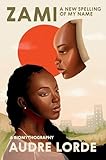

 At the end of the summer, I moved an hour west of Iowa City to Grinnell where I started a fellowship. Alone in this new town, I locked myself in my empty office for hours to finish my novel. I tried reading Audre Lorde’s Zami: A New Spelling of My Name and Anuk Arudpragasam’s A Passage North, but it was impossible to get through more than a page or two before I felt compelled to write, such was the beauty of these luminous books that they made my own words feel vital. The only book I was able to finish during this time was Lina Meruane’s Seeing Red. After a stroke leaves her blind, a young Chilean writer finds herself increasingly trapped within her body and life. Her voice—wet, dark, pulsing—held me spellbound. I often paused in the middle of a page to convince myself I wasn’t losing my own vision.
At the end of the summer, I moved an hour west of Iowa City to Grinnell where I started a fellowship. Alone in this new town, I locked myself in my empty office for hours to finish my novel. I tried reading Audre Lorde’s Zami: A New Spelling of My Name and Anuk Arudpragasam’s A Passage North, but it was impossible to get through more than a page or two before I felt compelled to write, such was the beauty of these luminous books that they made my own words feel vital. The only book I was able to finish during this time was Lina Meruane’s Seeing Red. After a stroke leaves her blind, a young Chilean writer finds herself increasingly trapped within her body and life. Her voice—wet, dark, pulsing—held me spellbound. I often paused in the middle of a page to convince myself I wasn’t losing my own vision.

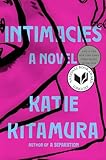
 When my book sold, I returned to reading. I ripped through an early copy of Olga Dies Dreaming by Xochitl Gonzalez, a masterfully plotted novel, bold, and surprising book about two siblings in Brooklyn and the revolutionary mother who abandoned them. I breezed through Katie Kitamura’s Intimacies, which I was anticipating since A Separation. Every single line of this novel held the charge of an existential threat. My friend laughed because I was taking a picture of almost every page, but I knew that what I held in my hands was a masterclass on bringing characters within an inch of unraveling. The next book I picked up was Red Pill by Hari Kunzru, and I couldn’t help imagining Kunzru and Kitamura, the power couple of literary psychological thrillers, sharing pages with each other. In my head, I spun a fantasy of love and collaboration. I decided: My next lover would be a writer. And then I remembered that not so long ago, at the beginning of this year, I’d dated another writer, who was so talented, that once, when they edited a paragraph for me, I felt like an idiot for days after.
When my book sold, I returned to reading. I ripped through an early copy of Olga Dies Dreaming by Xochitl Gonzalez, a masterfully plotted novel, bold, and surprising book about two siblings in Brooklyn and the revolutionary mother who abandoned them. I breezed through Katie Kitamura’s Intimacies, which I was anticipating since A Separation. Every single line of this novel held the charge of an existential threat. My friend laughed because I was taking a picture of almost every page, but I knew that what I held in my hands was a masterclass on bringing characters within an inch of unraveling. The next book I picked up was Red Pill by Hari Kunzru, and I couldn’t help imagining Kunzru and Kitamura, the power couple of literary psychological thrillers, sharing pages with each other. In my head, I spun a fantasy of love and collaboration. I decided: My next lover would be a writer. And then I remembered that not so long ago, at the beginning of this year, I’d dated another writer, who was so talented, that once, when they edited a paragraph for me, I felt like an idiot for days after.
 As the months got colder and I got lonelier and my therapist upped my Lexapro prescription, adding Wellbutrin for good measure, I began flirting shamelessly and idly with guys in big cities, wishing I was anywhere but where I was, and this was how I struck up a friendship with Mark Doten. He sent me a copy of Dennis Cooper’s I Wished, which he’d edited. This was my first time reading Cooper. I had heard of him over the years, but he kept getting lost in the notes I kept on my phone of books to read. In this slim, unruly book, Dennis Cooper returns to write about George Miles—the lover/man/boy/idea-of-a-person he has memorialized in five other novels. My first boyfriend, Ed, who I’d met at 13, was so much like George, that I could not stop thinking that I needed to write more about him. I had to write two, three, five books about his hunger and madness, his idiocy and pride.
As the months got colder and I got lonelier and my therapist upped my Lexapro prescription, adding Wellbutrin for good measure, I began flirting shamelessly and idly with guys in big cities, wishing I was anywhere but where I was, and this was how I struck up a friendship with Mark Doten. He sent me a copy of Dennis Cooper’s I Wished, which he’d edited. This was my first time reading Cooper. I had heard of him over the years, but he kept getting lost in the notes I kept on my phone of books to read. In this slim, unruly book, Dennis Cooper returns to write about George Miles—the lover/man/boy/idea-of-a-person he has memorialized in five other novels. My first boyfriend, Ed, who I’d met at 13, was so much like George, that I could not stop thinking that I needed to write more about him. I had to write two, three, five books about his hunger and madness, his idiocy and pride.


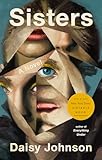 In the last two weeks, I’ve started Camera Lucida by Roland Barthes, The Morning Star by Karl Ove Knausgard, Sisters by Daisy Johnson, A Girl’s Story by Annie Ernaux, and The Art of Revision by Peter Ho Davies. I’d forgotten how much I loved reading several books at once. It brings out the way writers, no matter where they are, are all speaking to each other, and reaffirms my optimistic belief that we’re never just writing for ourselves. I want to say it’s like a party then. Everyone’s invited. Here’s Annie building suspense by telling us everything about her teenage life before getting to what happened at the summer camp; there’s Peter sharing the time his father intervened in a hate crime. Everyone is telling the story of how they came to know themselves more deeply, how they did or didn’t make sense of the world, and—my personal favorite—how those stories were later revised. I’m walking across the room to Roland, saying hello; he’s just as engaging now as he was a decade ago. Like at any party, I bring whatever conversation I just had into the next. I make connections between unlikely friends. It can feel like work, but I’m not jealous of anyone, only happy they’re here, that they came. And sometimes, just for a moment, when I step back and look across the room, I feel like I understand my place in the world. I’m right where I should be. Then when I’m bored, hungry, horny, I leave. Before I go—won’t you sit next to me? Tell me whom and what you love?
In the last two weeks, I’ve started Camera Lucida by Roland Barthes, The Morning Star by Karl Ove Knausgard, Sisters by Daisy Johnson, A Girl’s Story by Annie Ernaux, and The Art of Revision by Peter Ho Davies. I’d forgotten how much I loved reading several books at once. It brings out the way writers, no matter where they are, are all speaking to each other, and reaffirms my optimistic belief that we’re never just writing for ourselves. I want to say it’s like a party then. Everyone’s invited. Here’s Annie building suspense by telling us everything about her teenage life before getting to what happened at the summer camp; there’s Peter sharing the time his father intervened in a hate crime. Everyone is telling the story of how they came to know themselves more deeply, how they did or didn’t make sense of the world, and—my personal favorite—how those stories were later revised. I’m walking across the room to Roland, saying hello; he’s just as engaging now as he was a decade ago. Like at any party, I bring whatever conversation I just had into the next. I make connections between unlikely friends. It can feel like work, but I’m not jealous of anyone, only happy they’re here, that they came. And sometimes, just for a moment, when I step back and look across the room, I feel like I understand my place in the world. I’m right where I should be. Then when I’m bored, hungry, horny, I leave. Before I go—won’t you sit next to me? Tell me whom and what you love?
More from A Year in Reading 2021 (opens in a new tab)
Do you love Year in Reading and the amazing books and arts content that The Millions produces year round? We are asking readers for support to ensure that The Millions can stay vibrant for years to come. Please click here to learn about several simple ways you can support The Millions now.
Don’t miss: A Year in Reading 2020, 2019, 2018, 2017, 2016, 2015, 2014, 2013, 2012, 2011, 2010, 2009, 2008, 2007, 2006, 2005
The post A Year in Reading: Santiago Jose Sanchez appeared first on The Millions.











